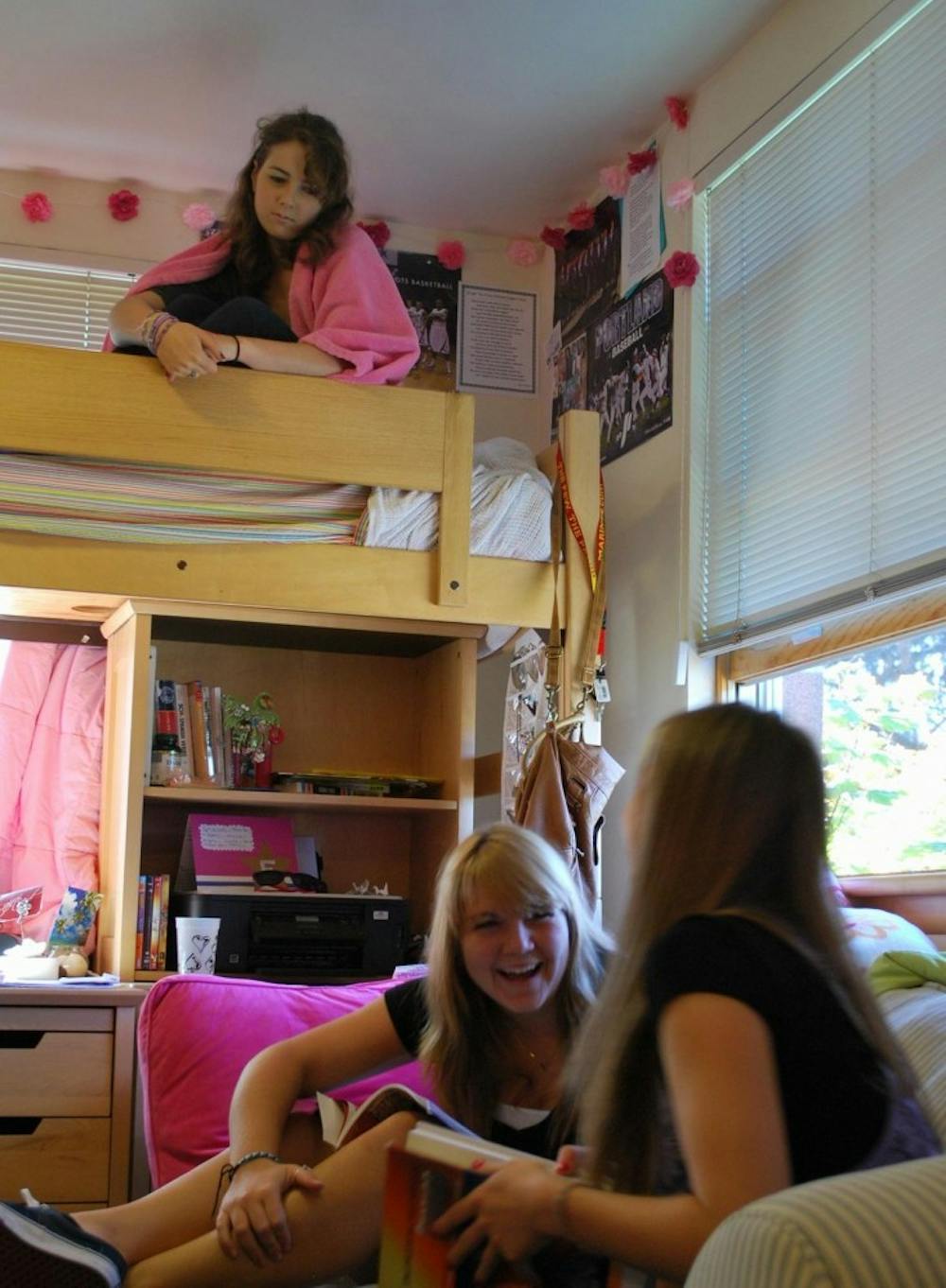Students and RAs discuss ways to solve roommate conflict
(Kayla Wong -- The Beacon)
By Rachel McIntosh Staff Writer mcintosh14@up.edu
The roommate relationship is the most important relationship to cultivate during what could be four very long years on campus. If you do not set up rules and boundaries in the beginning, it can be difficult to regain respect later on in the year. But confronting roommates can be challenging for some people.
"We call the early roommate togetherness the honeymoon stage," Jeff Makjavich, ajunior resident assistant said. "No one wants to talk about the issues right away. It's awkward. They tread lightly and a lot of things go unsaid. Over time it gets more and more awkward. That is completely unhealthy. I always encourage the people to start asking the questions right away."
For some students, the concept of shared space is rather abstract, according to Michelle Reynolds, a senior RA. Most kids come from homes where they have never had to share a room, so as they jump into college life, many of them must learn how to balance the expectations of their roommates while maintaining a certain level of respect.
"I think a big issue people have coming in with a new roommate is setting too high of expectations because your roommate doesn't have to be your best friend," Reynolds said. "Sometimes it is better if you can just get along and live together and be respectful of each other's space."
According to Makjavich, the key to a healthy roommate relationship will always be communication about what is expected from both roommates, and ensuring that each party maintains respect for the other person's property.
"If people come into it with an individualist attitude – ‘This is my room, and I'm going to do what I want' – that is when things get intense and conflict arises," Makjavich said. "I always emphasize with my guys: Respect is everything. They are in it together. They're a community and they have to relinquish some of their rights they've probably had their whole lives."
When conflict does arise, the first step toward remediation is to discuss the issue with your roommate, or ask your RA to help you role play what you will say so your communication is clear and effective. If necessary, the second step is for you and your roommate to meet with your RA so they can help mediate the conflict.
"The first thing that an RA does is we will ask them if they have talked to their roommate about the issue," Reynolds said. "The students are all adults and ideally we want them to be able to take responsibility for their actions and confront people on their own. It's a huge life learning experience to live with a roommate in the first place so we want them to try to solve the issues. If that is not the case then we will intervene."
Christina Steiner, a sophomore, had communication issues with her roommate early on during her freshman year.
"After talking to my RA and hall director, I realized the situation wasn't going to get better until I started communicating with my roommate about my expectations for our living situation," Steiner said. "That, in turn, opened up the door for her to express her concerns as well, which made us closer since we're rooming together this spring."
Adjusting to a new way of living can create a challenge for many students, but when issues such as study hours in the room, guest visits and bed times are established in the beginning, it helps relieve some of the stress. It is never too late to start talking because the more time you wait, the worse the problem gets.
"College is about learning but it is also about dealing with new situations and learning to cooperate with others which is part of the growing up process," Steiner said.
If you picked mostly As (Ann Truong -- The Beacon)
If you picked mostly Bs (Ann Truong -- The Beacon)
If you picked mostly Cs (Ann Truong -- The Beacon)








